FSPR Regulatory Entity

In this article
The Financial Service Providers Register is a regulatory entity that has authority over financial providers, services and products. It plays the role of registering financial businesses or organisations so that the customers can be satisfied with the reliability and credibility of a service provider.
The FSPR was introduced to meet Financial Action Task Forces’ recommendations to combat money laundering and the financing of terrorism. It was established under the act of Financial Service Provides (Registrations and Dispute Regulation) in 2008.
FSPR registration became compulsory for those providing financial services on 1 December 2010. The FSPR is a searchable register of individuals, businesses and organisations that provide financial services in New Zealand.
Its main aim is to prevent money laundering and to maintain the reputation of New Zealand’s financial market.
History of FSPR
The FSPR is a public register of financial service providers which was established in 2008. The establishment of FSPR was under the Financial Service Providers (Registration and Dispute Resolution) Act 2008.
The Financial Service Providers’ Register was officially launched in 2010. In December of 2010, being FSPR registered was made compulsory for all the businesses providing Financial Services.
It was a repeal of the 1995 Banking Act. FSPR enables the consumers to know the important details and necessary information about the businesses and people providing financial services.
Objectives of the FSPR
- The registers main goals are the following:
- To promote transparency of public information related to financial service providers (FSPs), the financial services they provide, and the dispute resolution scheme (DRS) to which they belong.
- To ensure that the individuals with specific criminal convictions are prevented from being an FSP or involved in the management of FSP.
- To help New Zealand comply with its international obligations to prevent money laundering and the financing of terrorism.
- To provide a single place online where FSPs can meet their registration and compliance requirements.
Role of FSPR as a Regulatory Entity
The main goal of the register is to combat money laundering and the financing of terrorism. FSPR was launched for tackling problems regarding customer’s concerns for financial providers.
It helps in preventing financial crimes and maintaining the reputation of New Zealand. Specifically, the aim of FSPR is as follows.
- To promote the confident and informed participation of businesses, investors, and consumers in the financial markets.
- To promote and ease the development of fair, efficient, and transparent financial markets.
- To enable brokerage firms that were previously unregulated to gain the customers’ confidence and credibility.
- To enable new start-ups to gain clients’ validation without the concern of following regulatory barriers forced in various nations.
- To prevent businesses and individuals from damaging the integrity and reputation of New Zealand’s financial markets.
- To prevent any sort of corruption in the administrative environment of New Zealand.
- To have a sound legal system and robust regulatory environment.
Compulsory for Service Providers
The FSPR was made compulsory for all the financial service providers on 1st December 2010. According to New Zealand’s law, no individual or business can give financial services without being authorised by the FSPR.
This compulsion for service providers yields the necessary results as it fulfils the main goal of FSPR.
FSPR Administration
The FSPR is managed by the Companies Office. It is a government agency that provides business registry services to corporate entities, personal property, and capital market securities.
It delivers its services through electronic systems and the internet. Companies Office operates as a Business Unit within the Ministry of Business, Innovation, and Employment. The Registrar of Companies is majorly responsible for the management services of FSPR.
FSPR Registered Entities
The organisations or businesses that have to be FSPR registered include many of the service providers. However, not all financial service providers need to be FSPR registered. There are some exemptions that apply to lawyers, tax agents, real estate agents, and accountants. The businesses that have to be FSPR registered are as follows:
- Financial Advisers
- Registered Banks
- Non-bank deposit client
- Credit providers
- Finance companies
- Foreign exchange traders
- Foreign currency changers
- Fund managers
- Investment portfolio managers
- Custodial service providers
- Insurers
- Issue
Licensing Organisations
An FSPR registered business fulfils the basic requirements set by the regulatory body. Being FSPR registered means that an individual or business is not involved in any possible criminal activity.
The nature of the financial services they provide and information of the business is available for the public. This helps the customer to be assured of the credibility and validation of the business.
To gain a licence, a business or individual must meet a number of requirements. For example, they must show:
- They are capable of providing the service effectively.
- Their managers and directors are not involved in financial criminal activities.
- There is no reason for us to believe they are likely to violate their obligations.
Licence holders are supervised and monitored by FSPR as a part of the terms of the licence. It is important to know that FSPR doesn’t regulate all financial services or providers. Some services are subject to regulation or supervision by other agencies, such as the Reserve Bank of New Zealand, the Commerce Commission, or the Department of Internal Affairs.
Information at the Register
The register contains necessary information regarding the businesses, individuals or organisations. The information available is to help the customers regarding their service provider and products. The details regarding each service provider are explained in detail:
- Their name and their trading names.
- Their registration number and the registration date.
- Their business addresses.
- The name and address of the Dispute Regulation Scheme (DSP) the FSP belongs to.
- The financial services they are registered to offer
- If any financial services are licensed, the name and address of the relevant licensing authority.
Bottom line
To sum it all up, the Financial Service Provider Register came into existence to examine and inspect the regulatory environment. It has been made compulsory so that all financial services provide transparency to the customers.
The FSPR has been a regulatory body that has helped New Zealand to overcome any financial corruption and have a sound legal system.
Jason Morgan is an experienced forex analyst and writer with a deep understanding of the financial markets. With over 13+ years of industry experience, he has honed his skills in analyzing and forecasting currency movements, providing valuable insights to traders and investors.
Forex Content Writer | Market Analyst
Relevant Posts

LSE Regulatory Entity
[top_three_brokers] LSE Group (London Stock Exchange Group) is a global provider of financial market infrastructure…
Read more

BaFin Regulatory Entity
[top_three_brokers] A German Financial Authority, Bundesanstalt für Finanzdienstleistungsaufsicht, is abbreviated as BaFin, known as Federal…
Read more

FSC Mauritius Regulatory Entity
[top_three_brokers] FSC (Mauritius) Regulatory Entity works as a regulatory body for all global business sectors…
Read more

FSC Regulatory Entity
[top_three_brokers] FSC, the Financial Service Commission, is a financial services regulatory body that works under…
Read more

DMCC Regulatory Entity
[top_three_brokers] The regulatory entity of DMCC is known for its involvement in international trade. It…
Read more

SCB Regulatory Entity
[top_three_brokers] SCB is the abbreviation of "The Securities Commission of The Bahamas (SCB)." This sector…
Read more

OCIF Regulatory Entity
[top_three_brokers] The Office of the Commissioner of Financial Institutions of Puerto Rico (OCIF) is the…
Read more

JSC Regulatory Entity
[top_three_brokers] The Jordan Securities Commission (JSC) emerged as an independent public organization in 1997. The…
Read more

CMVM Regulatory Entity
[top_three_brokers] The CMVM is a forex broker company set up in Portugal that provides financial…
Read more

FCA Regulatory Entity
[top_three_brokers] Currently, the Financial Conduct Authority (FCA) regulates the financial services industry in the UK…
Read more
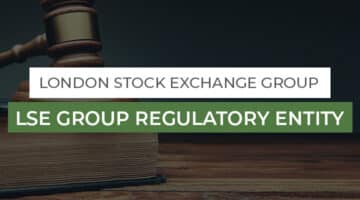
LSE Regulatory Entity
[top_three_brokers] LSE Group (London Stock Exchange Group) is a global provider of financial market infrastructure…
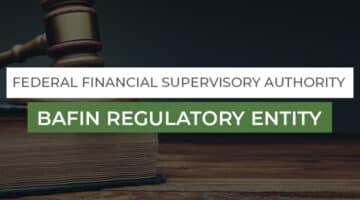
BaFin Regulatory Entity
[top_three_brokers] A German Financial Authority, Bundesanstalt für Finanzdienstleistungsaufsicht, is abbreviated as BaFin, known as Federal…
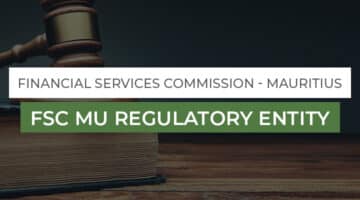
FSC Mauritius Regulatory Entity
[top_three_brokers] FSC (Mauritius) Regulatory Entity works as a regulatory body for all global business sectors…
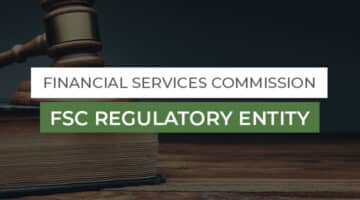
FSC Regulatory Entity
[top_three_brokers] FSC, the Financial Service Commission, is a financial services regulatory body that works under…
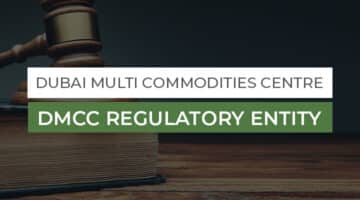
DMCC Regulatory Entity
[top_three_brokers] The regulatory entity of DMCC is known for its involvement in international trade. It…
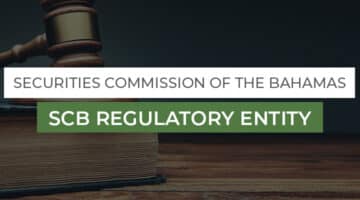
SCB Regulatory Entity
[top_three_brokers] SCB is the abbreviation of "The Securities Commission of The Bahamas (SCB)." This sector…
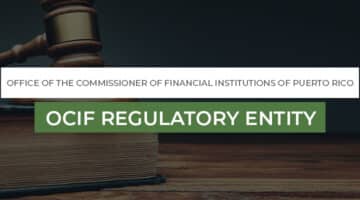
OCIF Regulatory Entity
[top_three_brokers] The Office of the Commissioner of Financial Institutions of Puerto Rico (OCIF) is the…
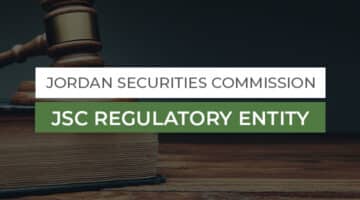
JSC Regulatory Entity
[top_three_brokers] The Jordan Securities Commission (JSC) emerged as an independent public organization in 1997. The…

CMVM Regulatory Entity
[top_three_brokers] The CMVM is a forex broker company set up in Portugal that provides financial…

FCA Regulatory Entity
[top_three_brokers] Currently, the Financial Conduct Authority (FCA) regulates the financial services industry in the UK…


